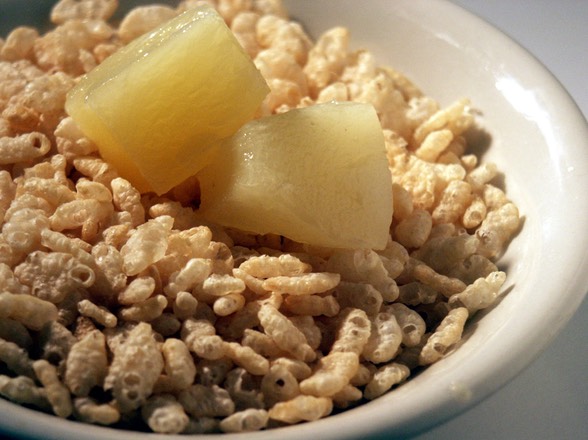“You’re not going anywhere until you eat your breakfast!” “But, but….” Jack slumps in his chair, Doreen’s jaw tenses, and the argument wars until everyone in the family is irritated.
The family breakfast drama—no one plans it, but the family slips into it, morning after morning. So why do we do it? Because we are busy or tired or in a hurry or trying to please everyone or don’t know what to do instead. Probably every family’s drama has a different why, a why idiosyncratic to that family. But any family can make changes. Let’s look at two parents who did.
Take back the breakfast!

When Doreen decided to take back the breakfast, she knew that she would have to get Jack’s attention big time about the expected behavior change. She explained to him that growing boys’ bodies need breakfast. She gave him a choice: eat breakfast without complaint, or go through a rigorous lifestyle check, including how much was he eating for dinner and during the evening, how much sleep was he getting, and a doctor’s check-up to see if there was some physical condition affecting his appetite. She showed him the checklists he would have to fill out. Jack resisted, Doreen persisted, and they discovered that Jack was eating a heavy fat snack just before bed. Oops!
Jaden’s family did a different breakfast drama. She and her brothers played the I want pancakes, I want French toast, I want scrambled eggs games. Jaden’s mom wanted smooths, not waves, and she ended up running a short-order kitchen. As each family member came to the table, she asked what each wanted, and she cooked it. Sometimes Clara forgot to eat her own breakfast. When her boss, a busy mom herself, called Clara in to talk about getting to work on time, she shared her “breakfast options” technique. She made the rule that there would be only one breakfast offering each day. She posted the menus for the week and the option was that anyone who wanted something different could get up early and prepare it as long as it did not include a high sugar food like sweetened cereal, sweet rolls, etc. Just to plant a little surprise, and encourage thinking about nutrition, she included pumpkin pie on the list of okay offerings. “Yes, pumpkin pie is made with milk, eggs, and pumpkin. There is a bit of sugar, but you make it the night before from the low sugar recipe on the inside of the cupboard door.”
Clara thought it over and decided that she really didn’t want to be a breakfast martyr to four teenagers any more. At first there was great whining, but after a few weeks the kids were cooking a couple of days a week and Clara was getting to work on time.

What did the Overindulgence Studies tell us? Some of the adults who had been overindulged as children reported learning to prepare meals as children, but many of them complained that they hadn’t learned to cook and that caused distress in their adult lives. They also stated that their parents had overindulged for the parents’ needs, not for the welfare of the children. We see that in these two moms were well intentioned, but not paying attention to their children’s needs to become competent. And it’s not only moms. Fred loved to cook. When he found out that his bride couldn’t cook he was secretly delighted. He cooked good food and got many good strokes for doing what he enjoyed doing. The rub came when their daughter wanted to learn to cook and Fred did not want to share his role as supreme king of the kitchen. Time to move over, Fred! He needs to take back the breakfast from himself.
There is more help about avoiding overindulgence in How Much is Too Much? Raising Likeable, Responsible, Respectful Children – From Toddlers To Teens – In An Age of Overindulgence (2014, DaCapo Press Lifelong Books).
All photos from MorgueFile free photo.


